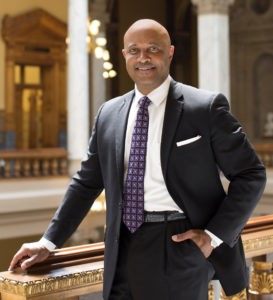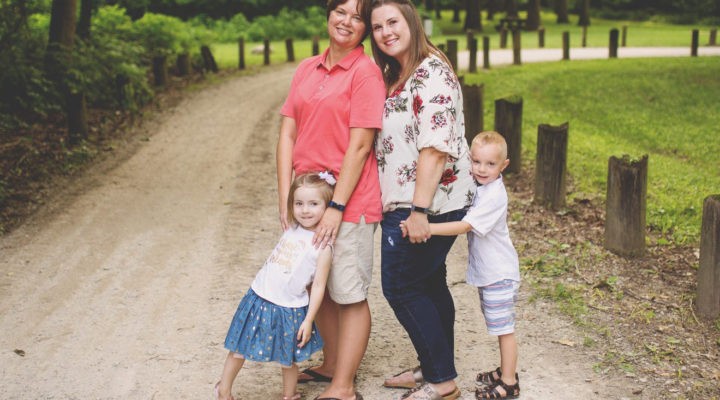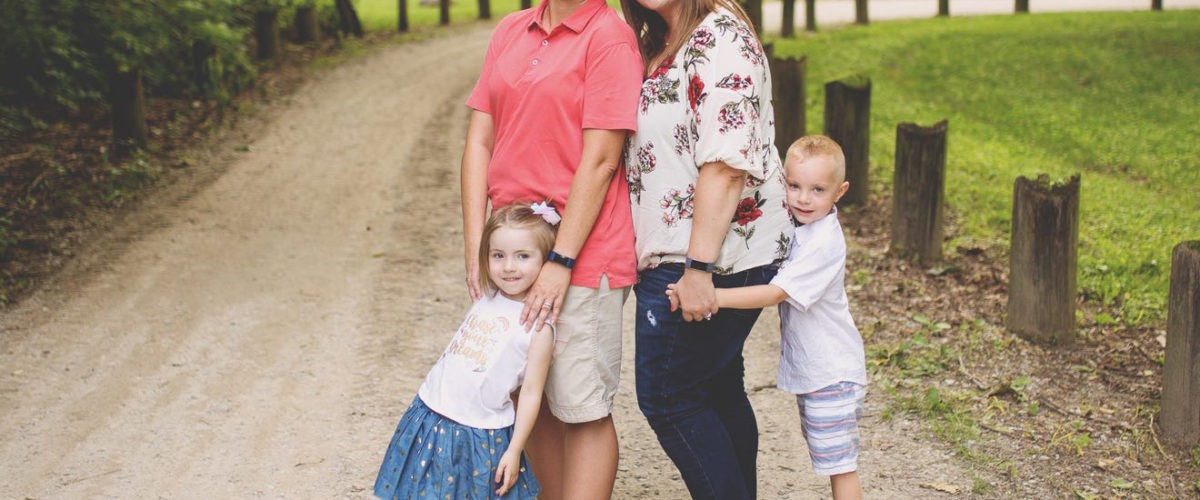While same-sex couples already were fretting that a new conservative majority on the U.S. Supreme Court could turn the legality of future marriages back to the states, a more sinister threat to families has emerged from Indiana.
On Nov. 23, Indiana Attorney General Curtis Hill asked the Supreme Court to strip same-sex couples of their equal parenting rights. Specifically, Indiana wants to deny same-sex couples the right to be recognized as parents of their own children.

Indiana Attorney General Curtis Hill
An article in Slate summarizes the back story to the case, Box v. Henderson: “The plaintiffs are eight married lesbian couples in Indiana who used a sperm donor to conceive. When a married opposite-sex couple uses a sperm donor, Indiana recognizes the birth mother’s husband as the child’s parent. When a married same-sex couple does the same thing, however, the state refuses to list the birth mother’s wife as the child’s parent. In both instances, the second parent has no biological connection to the child; Indiana’s decision to extend parental rights to the nonbiological husbands of birth mothers, but not the wives of birth mothers, is sheer discrimination.”
With the LGBTQ community and its allies already on high alert because of recent public comments against same-sex marriage by Justices Samuel Alito and Clarence Thomas, the news from Indiana appears to them to add insult to injury.
In an unusual occurrence for a Supreme Court justice, Alito in an address to the Federalist Society Nov. 12 blasted what he perceives as a liberal orthodoxy that seeks to silence the voices of conservatives. One of those verboten topics, he said, is same-sex marriage, which was legalized by the court in 2015 with Alito in opposition.
“You can’t say that marriage is a union between one man and one woman,” Alito told the Federalist Society. “Until very recently that’s what the vast majority of Americans thought. Now it’s considered bigotry.”
Alito joined Justice Thomas in a written opinion on an unrelated case Oct. 6 to take aim at the landmark marriage ruling, Obergefell v. Hodges.
“Due to Obergefell, those with sincerely held religious beliefs concerning marriage will find it increasingly difficult to participate in society without running afoul of Obergefell and its effect on other anti-discrimination laws,” they wrote in the joint opinion. “It would be one thing if recognition for same-sex marriage had been debated and adopted through the democratic process, with the people deciding not to provide statutory protections for religious liberty under state law. But it is quite another when the court forces that choice upon society through its creation of atextual constitutional rights and its ungenerous interpretation of the Free Exercise Clause, leaving those with religious objections in the lurch.”
The addition of Justice Amy Coney Barrett to the court just days before the presidential election was interpreted by moderates and progressives as a last-ditch conservative effort to stack the court in anticipation of overturning Obergefell and the landmark abortion ruling, Roe v. Wade.
Adding to the intrigue is the fact that the case in question, Box v. Henderson, had languished in a lower court for two and a half years.
So when the Indiana attorney general within the same month appealed to the Supreme Court for help enacting his desire to limit parental rights for same-sex couples, members of the LGBTQ community began to connect the dots in alarm.
Adding to the intrigue is the fact that the case in question, Box v. Henderson, had languished in a lower court for two and a half years. The 7th U.S. Circuit Court of Appeals heard arguments in this case on May 22, 2017, but did not issue a ruling until Jan. 17, 2020. That court’s normal turnaround time is three months.
That much-delayed ruling — issued by three conservative Republican appointees — unanimously agreed that Obergefell and another court precedent required Indiana to list same-sex parents on their child’s birth certificate when they conceive via artificial insemination.
The Supreme Court previously ruled on a related issue in Arkansas, saying a birth mothers’ wife’s name could not be withheld from the child’s birth certificate. In that case, Pavan v. Smith, the court said if a state lists a birth mother’s husband as a parent despite lack of biological connection, it must list a birth mother’s wife as a parent too.
Also, in Florida a federal judge cited Obergefell to say the state must list married lesbian couples as the parents of a child conceived with a sperm donor, since the same right is granted to married opposite-sex couples.
Which is why all roads lead back to a possible reconsideration of Obergefell and the national mandate to legalize same-sex marriage. In Obergefell, the court said the Constitution entitles same-sex couples to marriage “on the same terms and conditions as opposite-sex couples.”
Meanwhile, Hill, the Indiana attorney general, has said his case is about a state’s right to mark “biological distinction between males and females.” The reason, he said, is that a birth mother’s wife “is never the biological father.”
Supreme Court justices are scheduled to consider Dec. 11 whether they will take up the Indiana case or not.
Related articles:
If court reverses same-sex marriage it will do so against what majority of Americans want
Elections have consequences, and now my marriage may be at stake | Susan Shaw
What I learned from RBG about the ‘dissenter’s hope’ | Jordan Conley


